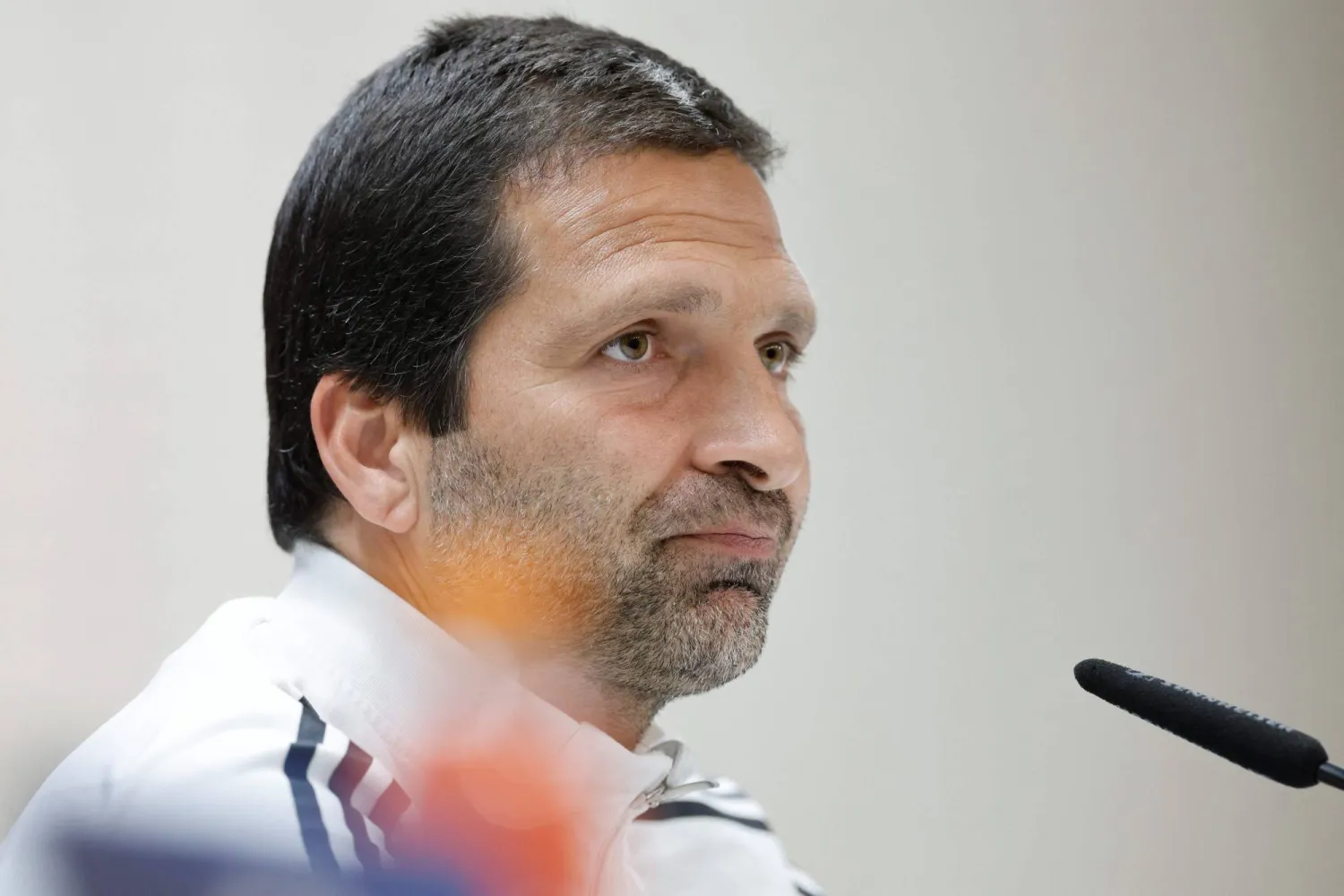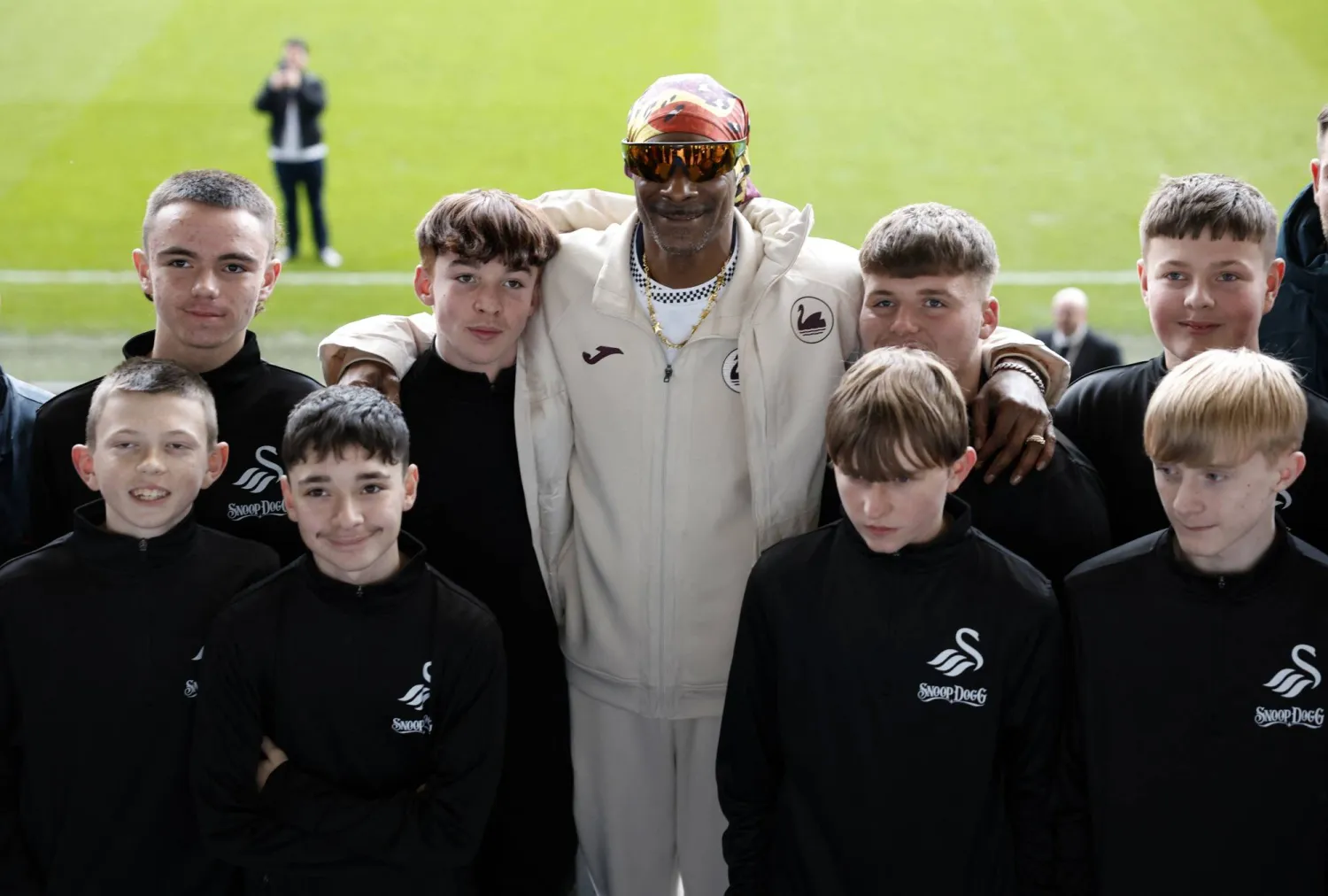Sven-Goran Eriksson, the Swedish football manager who spent five years as England’s first ever foreign-born coach after making his name winning trophies at club level in Italy, Portugal and Sweden, died Monday. He was 76.
Eriksson died at home surrounded by his family, his agent Bo Gustavsson told The Associated Press.
His death followed eight months after he revealed he had been diagnosed with pancreatic cancer and had at most one year to live.
That news led to Eriksson receiving a surge of affection and tributes from his former players and clubs, a biographical documentary being made, and a visit to his favorite club Liverpool which invited him to be manager for the day at a charity game.
“As a coach, Sven-Goran was both a great innovator and a true ambassador of our beautiful game,” said FIFA President Gianni Infantino, one of many leading figures in the sport to pay tribute to Eriksson on Monday.
Fondly known as “Svennis” in his native Sweden, Eriksson had a modest, nine-year playing career before retiring at the age of 27 and embarking on what proved to be a nomadic coaching career that reached its peak when he was hired by England in 2001.
Within months, he led an underachieving team to a stunning signature win — 5-1 against Germany in Munich in a World Cup qualifying game.
Eriksson led what was regarded as a “golden generation” of players, including David Beckham, Steven Gerrard and Wayne Rooney, at the World Cups in 2002 and 2006 and got the team to the quarterfinals at both tournaments before elimination by Brazil and Portugal, respectively.
In the only other major tournament under Eriksson — the European Championship in 2004 — England was also ousted at the quarterfinal stage, by Portugal and via a penalty shootout like at the World Cup in 2006.
“We laughed, we cried and we knew we were saying goodbye,” Beckham wrote in a post on Instagram alongside footage of a recent meeting with Eriksson, who made him captain of the national team.
“Sven, thank you for always being the person you have always been — passionate, caring, calm and a true gentleman. I will be forever grateful for you making me your captain but I will forever hold these last memories of this day with you and your family ... Thank you Sven and in your last words to me, ‘It will be ok.’”
Eriksson’s tenure in one of world soccer’s most high-profile jobs was remembered almost as much for what happened off the field as on it. “My private life was not very private in England,” Eriksson said in 2018.
His time with England coincided with the emergence of a WAG (wives and girlfriends) culture, with the high-profile partners of the players — like Victoria Beckham — making headlines after Eriksson allowed them to come to the World Cup in Germany.
Eriksson later had brief spells in charge of the Mexico, Ivory Coast and Philippines national teams but the only silverware he earned came in the club game.
At Swedish team IFK Gothenburg, he won the league-and-cup double in 1982 and capped a stunning season by also capturing the now-defunct UEFA Cup.
Eriksson won back-to-back Portuguese titles in an initial two-year stint with Benfica (1982-84), as well as the Portuguese Cup in 1983, and returned there to reach the European Cup final in 1990 — losing to AC Milan — and win the league again in 1991.
It was in Italy where he became a major coaching name, primarily at Lazio after spells at Roma (1984-87) and Sampdoria (1992-97) — where he won Italian Cups — and Fiorentina (1987-89).
At Lazio from 1997-2001, he led to the team to only its second league title — in 2000 — after a late-season collapse by Juventus, as well as two Italian Cups and the last ever edition of the European Cup Winners’ Cup (in 1999).
Eriksson’s Lazio could have won Serie A in 1999, too, only to be beaten to the title by a point by AC Milan and also lost the final of the UEFA Cup in ’98.
“It was the best period of my career,” Eriksson said of winning seven trophies in a four-year stretch, at a time when Italy was rivaling Spain as the Europe’s top football league.
Eriksson benefited from the heavy spending of its owner, Sergio Cragnotti, at Lazio, with the Scudetto-winning team containing big names like Juan Sebastián Verón, Pavel Nedved and Sinisa Mihajlovic.
It continued the following season when the Roman club, seeking to win the Champions League, spent a world-record fee to buy Hernan Crespo and also bought fellow Argentine striker Claudio López but Eriksson didn’t finish the season after being enticed by the England job.
He also had two year-long stints in club management in England, at Manchester City (2007-08) and Leicester (2010-11), either side of a spell as director of football at fourth-tier Notts County.
Bespectacled and a straight talker, Eriksson was popular with his players throughout his coaching career and was regarded as an excellent man-manager. He exuded a calm authority in the locker room and was never afraid of making big decisions, like selling Guiseppe Signori — the captain and star striker at Lazio — because Eriksson didn’t think the player was a good influence. Lazio won the league the following season.
Eriksson finished his coaching career by managing two clubs in China — Guangzhou and Shanghai SIPG — and more recently had the role of sporting director at Karlstad, a team in Sweden’s third division, before announcing in February 2023 that he’d be standing down for health reasons.
They became widely known 11 months later when Eriksson told Swedish Radio he had terminal cancer, saying: “At best I have maybe a year, at worst maybe a little less.”
“I could go and think about it all the time and sit at home and be grumpy and think I’m unlucky and so on,” he said. “I think that is easily done, that you end up there.
“No, look at things positively and don’t wallow in adversity. Because this is, of course, the biggest setback.”
Swedish Prime Minister Ulf Kristersson said Eriksson “lives on in the hearts of the Swedish people.”
“Svennis’ importance to football, in Sweden and outside Sweden, cannot be overestimated,” Kristersson said. “I can only imagine how many girls and boys have started playing football — and dared to dream — because of his efforts. Thanks for everything Svennis!”









